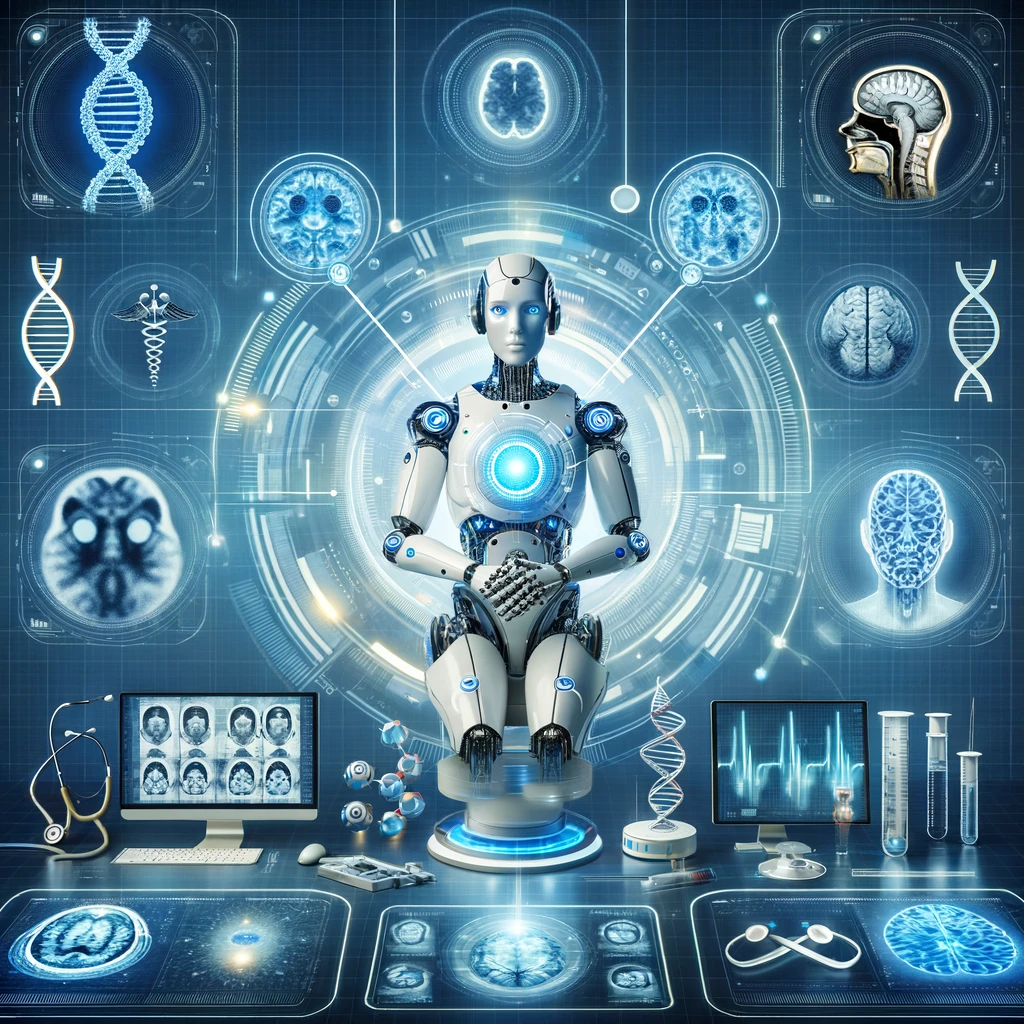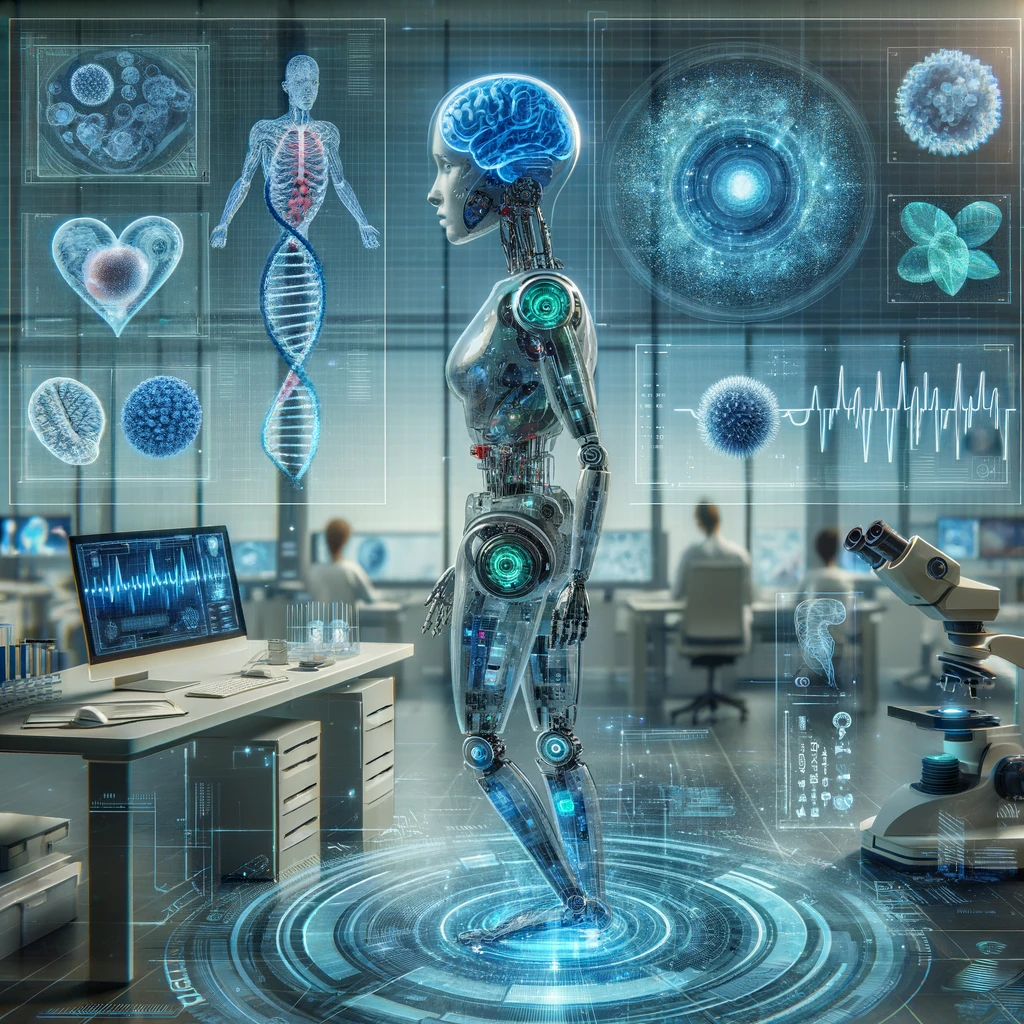The advancement of technology has been a great ally in several sectors, and healthcare is no different.
The integration of artificial intelligence in medical diagnosis is one of the most significant and promising advances in modern medicine.
This article explores how the artificial intelligence is transforming medical diagnosis, bringing precision, efficiency and life-saving innovations.
Index

The Rise of AI in Medicine
Medicine has always sought ways to improve the diagnosis and treatment of diseases.
With the advent of artificial intelligence, this search has reached a new level.
AI in medical diagnosis not only speeds up the diagnostic process but also increases its accuracy by analyzing large volumes of healthcare data to identify patterns that can be easily overlooked by the human eye.
Artificial Intelligence: A New Era in Medical Diagnosis
The Impact of AI on Early Disease Detection
One of the biggest benefits of artificial intelligence in medical diagnosis is its ability to detect diseases at early stages.
Through advanced algorithms, the AI can analyze medical images, such as x-rays and tomography scans, with surprising precision, identifying subtle signs of diseases such as cancer, long before they are detectable by conventional methods.
Personalization of Medical Treatment
Another revolutionary aspect of AI in medical diagnosis is the personalization of treatment.
AI can analyze a patient's medical history, along with genetics and other factors, to recommend the most effective treatment.
This personalized approach not only improves treatment effectiveness, but also reduces side effects and speeds recovery.
Increasing Accessibility and Reducing Costs
Artificial intelligence in medical diagnosis also has a significant impact on the accessibility and cost of healthcare.
With AI, diagnoses can be made faster and with fewer resources, making medical care more accessible to a larger population and reducing overall healthcare costs.
Challenges and Ethical Considerations
Despite its many benefits, the application of artificial intelligence in medical diagnosis faces challenges including the accuracy of algorithms and the ethics of medical decision-making.
Issues such as data privacy and the possibility of bias in AI systems are concerns that must be addressed to ensure the technology benefits everyone.
The Future of Artificial Intelligence in Medical Diagnosis
The future of artificial intelligence in medical diagnostics is incredibly promising. We are just beginning to explore the potential of this technology.
As algorithms become more sophisticated and healthcare databases grow, AI will continue to improve the accuracy of diagnoses and the effectiveness of treatments.
Continuous Innovations in Diagnostic Technology
Continuous innovation is a hallmark of artificial intelligence in medical diagnosis.
As technology evolves, new diagnostic methods are being developed, including AI systems that can analyze genetic data to predict susceptibility to certain diseases, and mobile apps that allow remote monitoring of a patient's health.
Collaboration between Humans and Machines
One of the most interesting trends in the application of artificial intelligence in medical diagnosis is the collaboration between humans and machines.
AI is not replacing doctors, but expanding their capabilities, providing them with powerful tools to improve diagnosis and treatment.
This collaboration promises to improve not only diagnostic accuracy but also the efficiency of the patient care process.
Integrating AI into Medical Practice
Effectively integrating AI into medical diagnosis requires more than just advanced technology; it also requires a change in medical practice.
This includes training for doctors and healthcare professionals so they can understand and effectively use these tools, and an open dialogue about the limitations and potentials of AI.
AI Education and Training for Healthcare Professionals
AI education and training are essential to maximizing your potential in medical diagnosis.
Healthcare institutions must invest in training their professionals, not only in how to use AI tools, but also in how to interpret their results and integrate them into patient care.
Future Developments in AI and Healthcare
The future of artificial intelligence in medical diagnosis is vast.
Technology is evolving rapidly, and new applications are continually emerging.
With the development of more advanced algorithms and the increasing availability of healthcare data, AI promises to further transform medicine, making diagnosis and treatment more accurate, personalized and accessible.

Final Words
Artificial intelligence in medical diagnosis is one of the most exciting and promising areas of modern medicine.
With its ability to analyze complex data, deliver accurate and personalized diagnoses, and improve the efficiency and accessibility of healthcare, AI is defining the future of medicine.
As we continue to explore and develop these technologies, we can expect major advances in the quality and effectiveness of medical care.
Conclusion about Artificial Intelligence in Medical Diagnosis
The integration of artificial intelligence into medical diagnosis is redefining the field of medicine.
While we are still in the early stages of this revolution, it is already clear that AI has the potential to significantly improve the quality of healthcare.
With its ability to analyze large volumes of data, identify patterns, and offer accurate, personalized diagnoses, AI is paving the way for a more efficient and accessible era of medicine.







